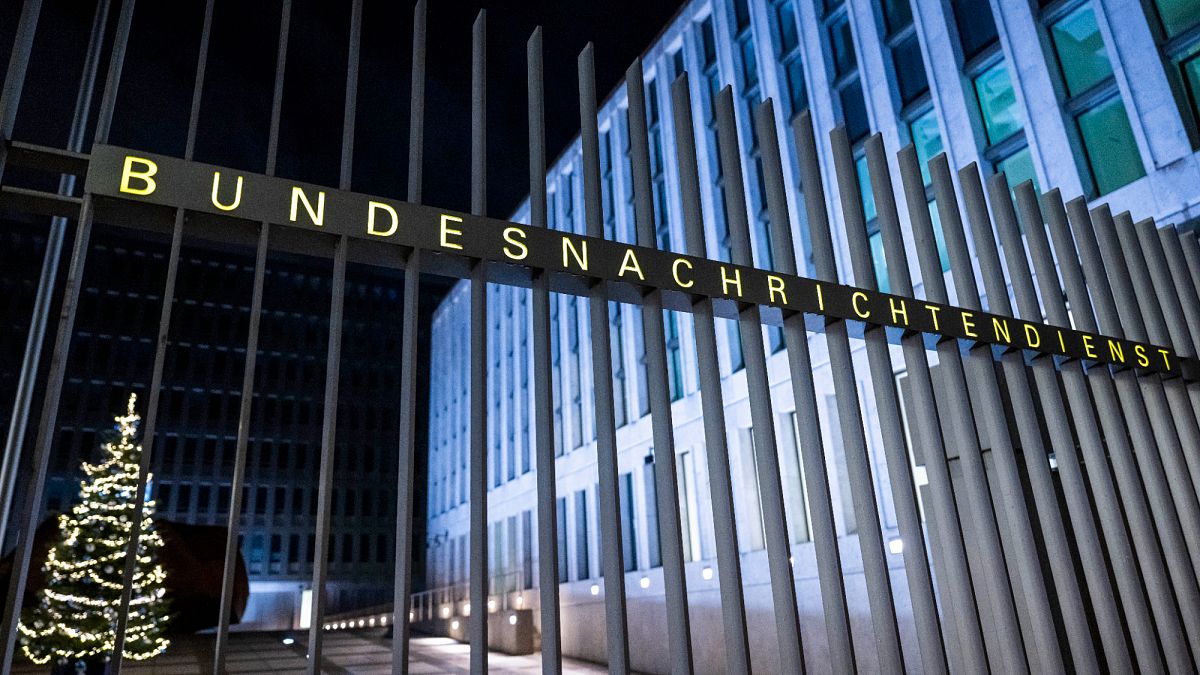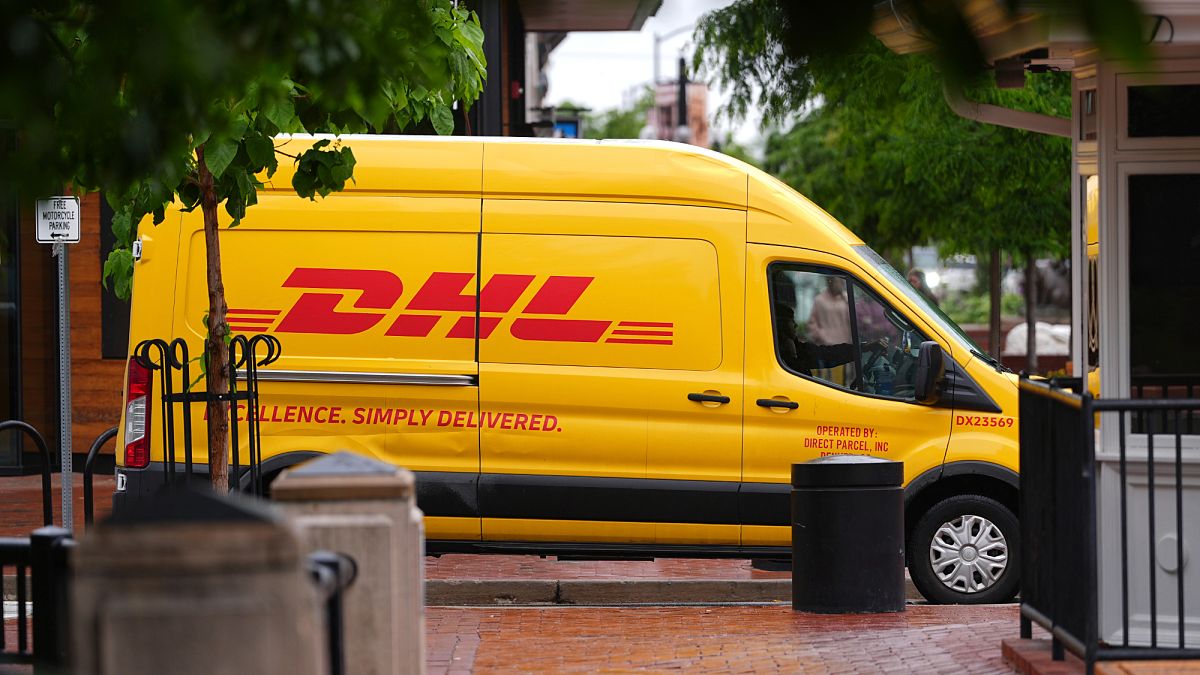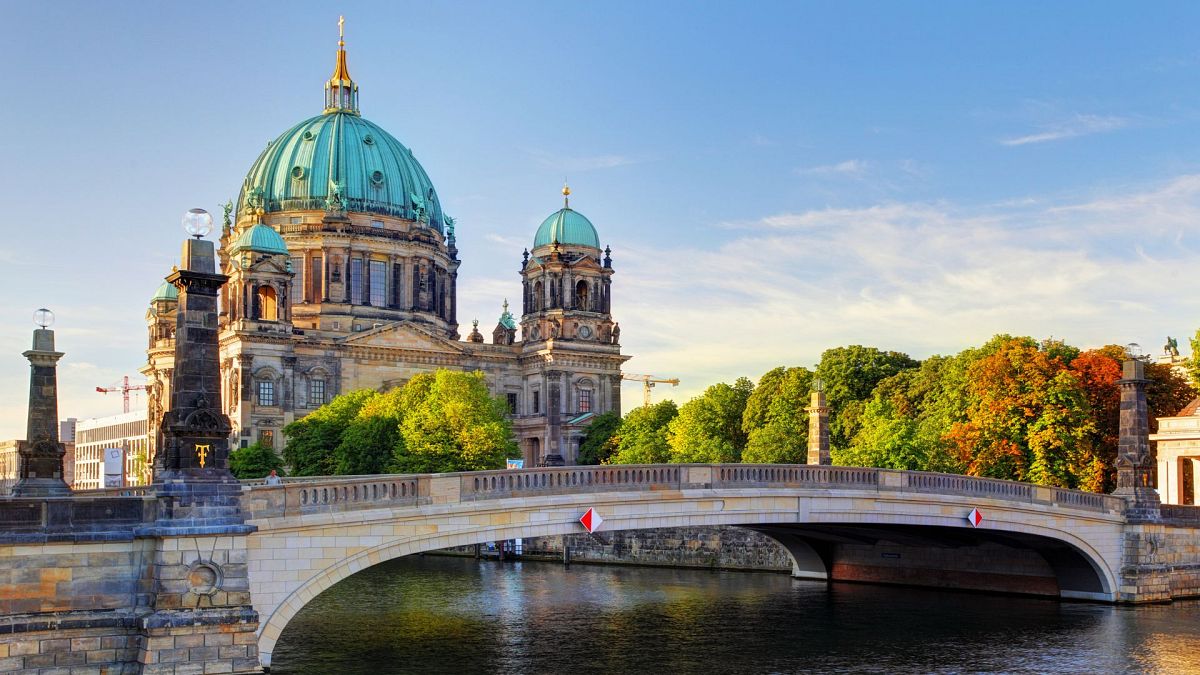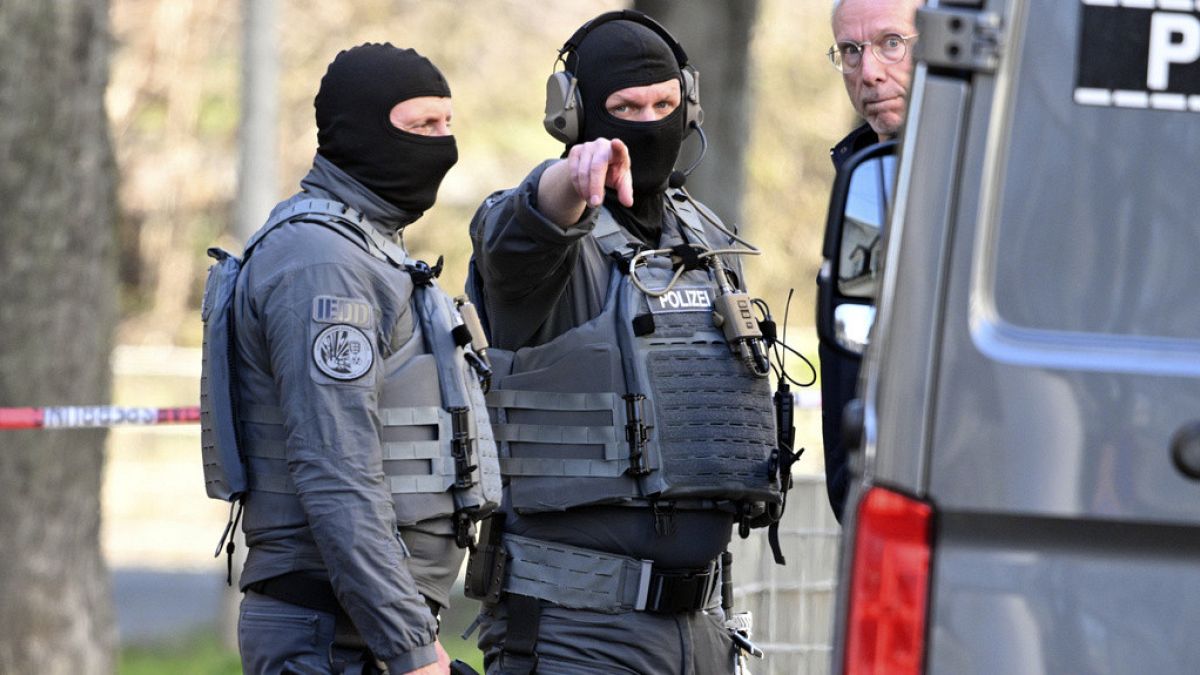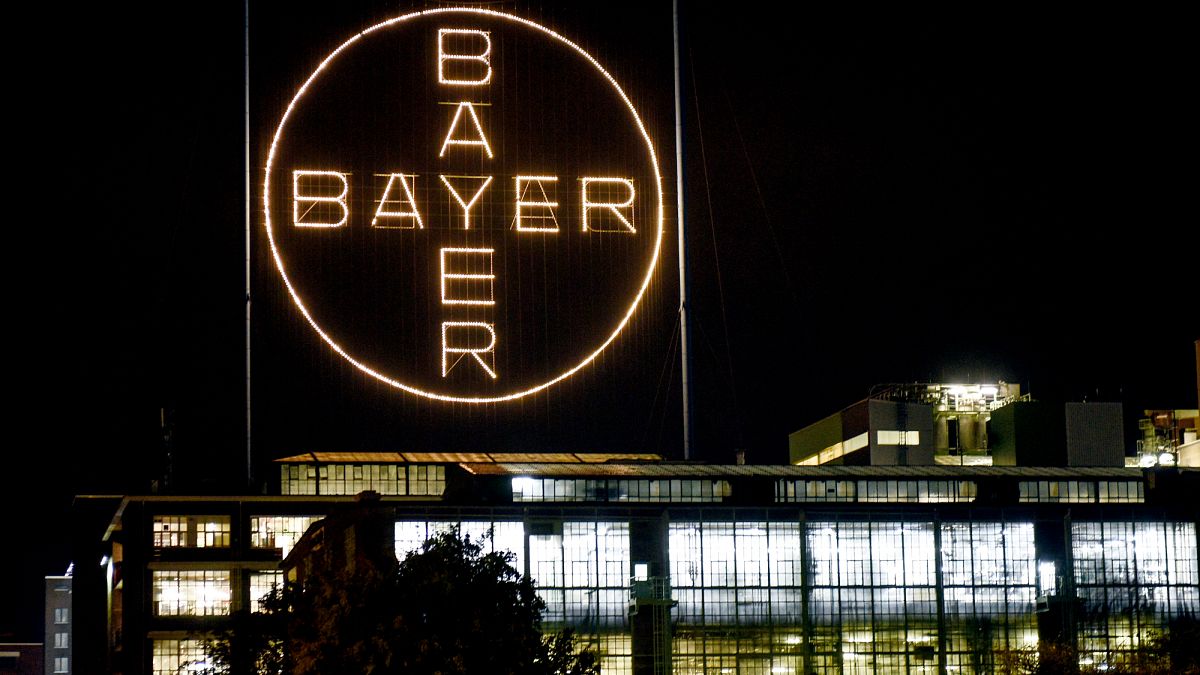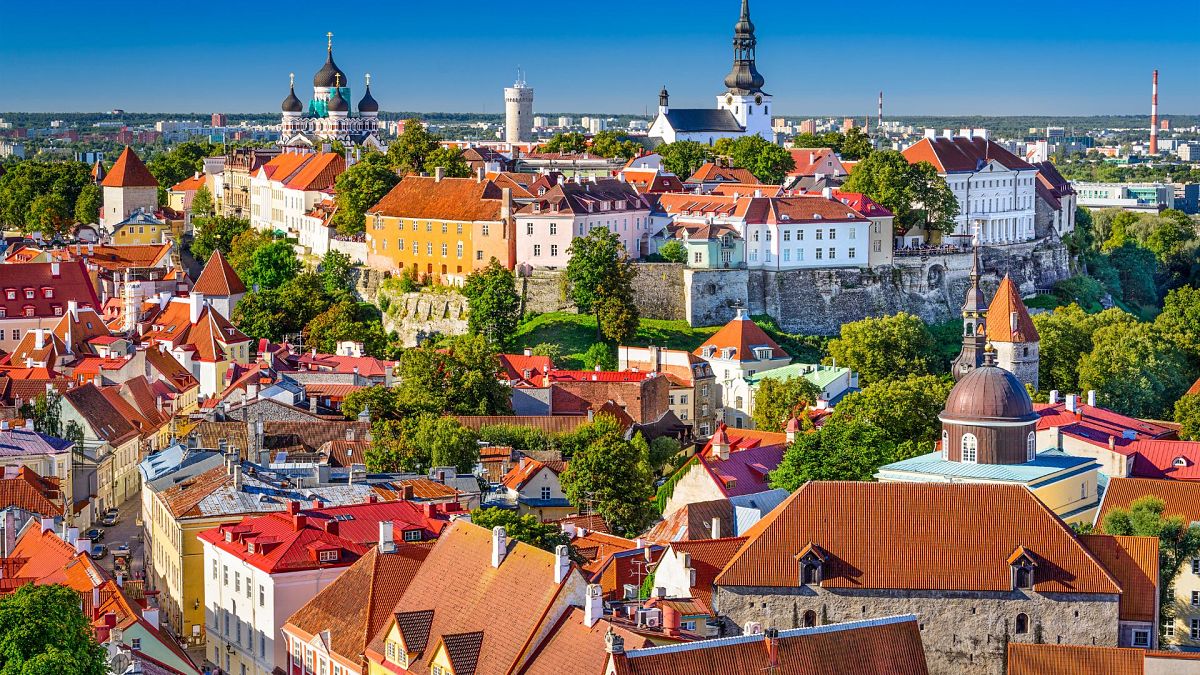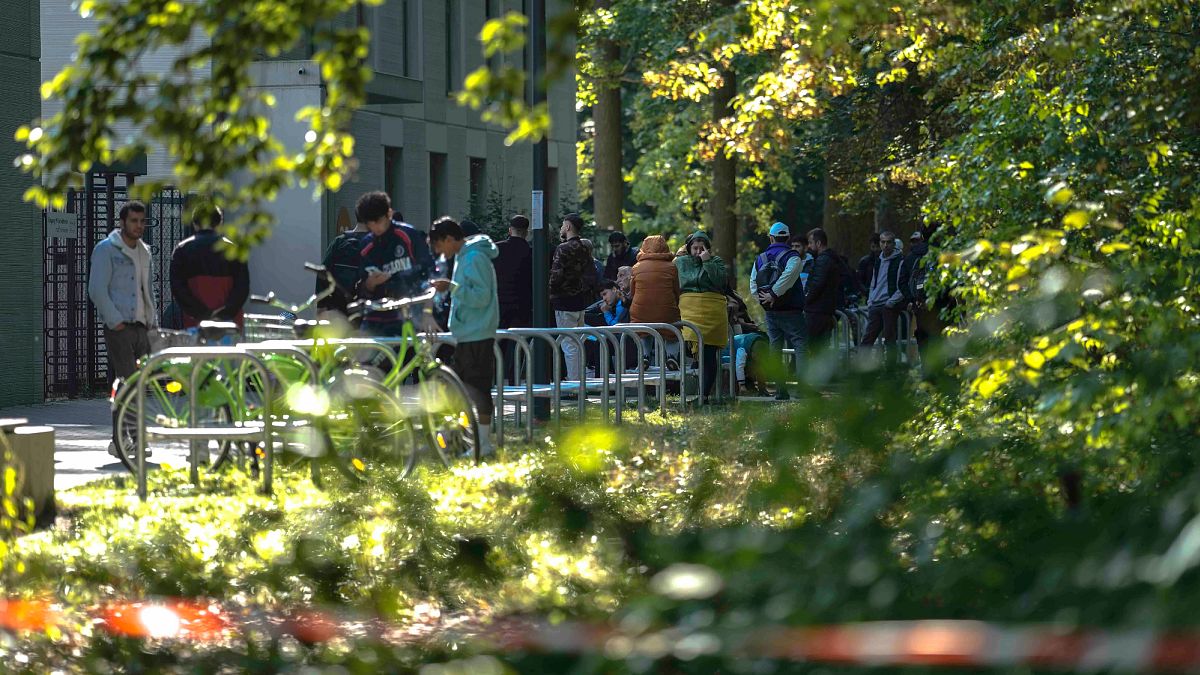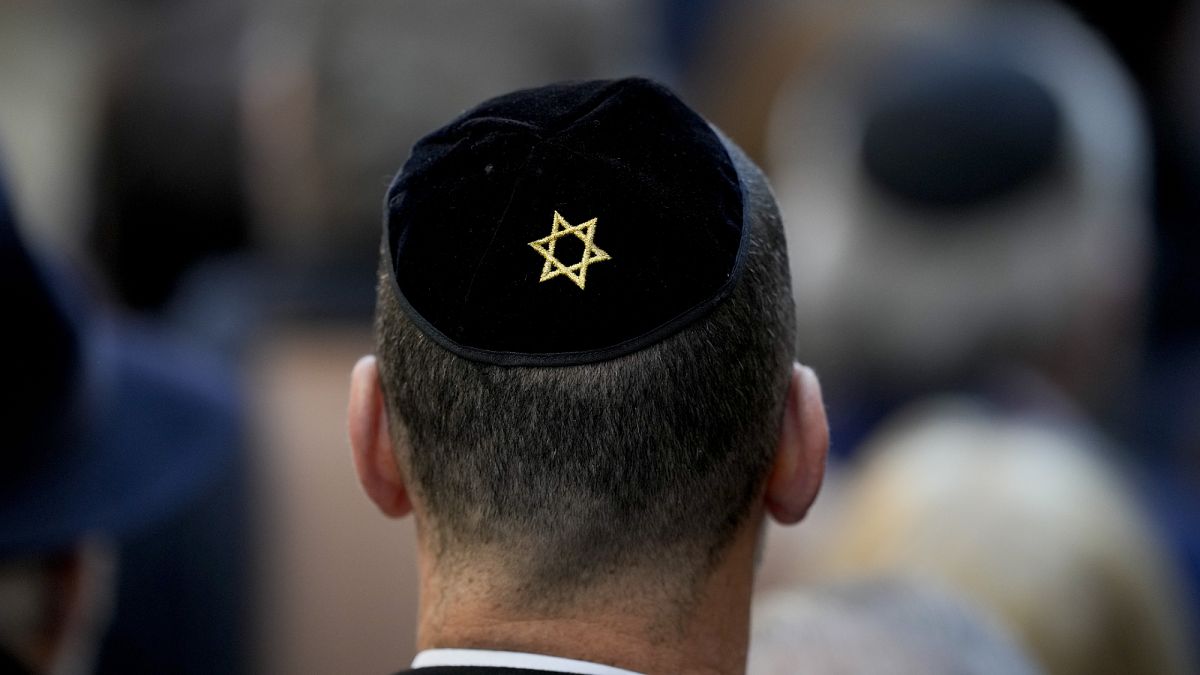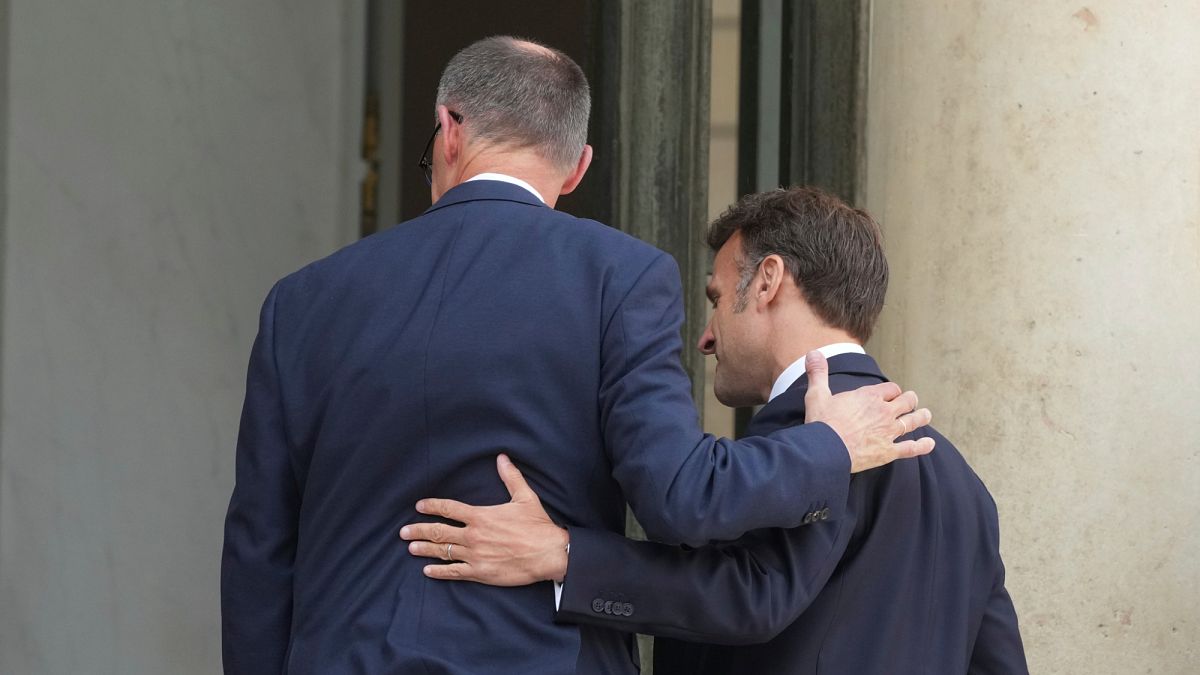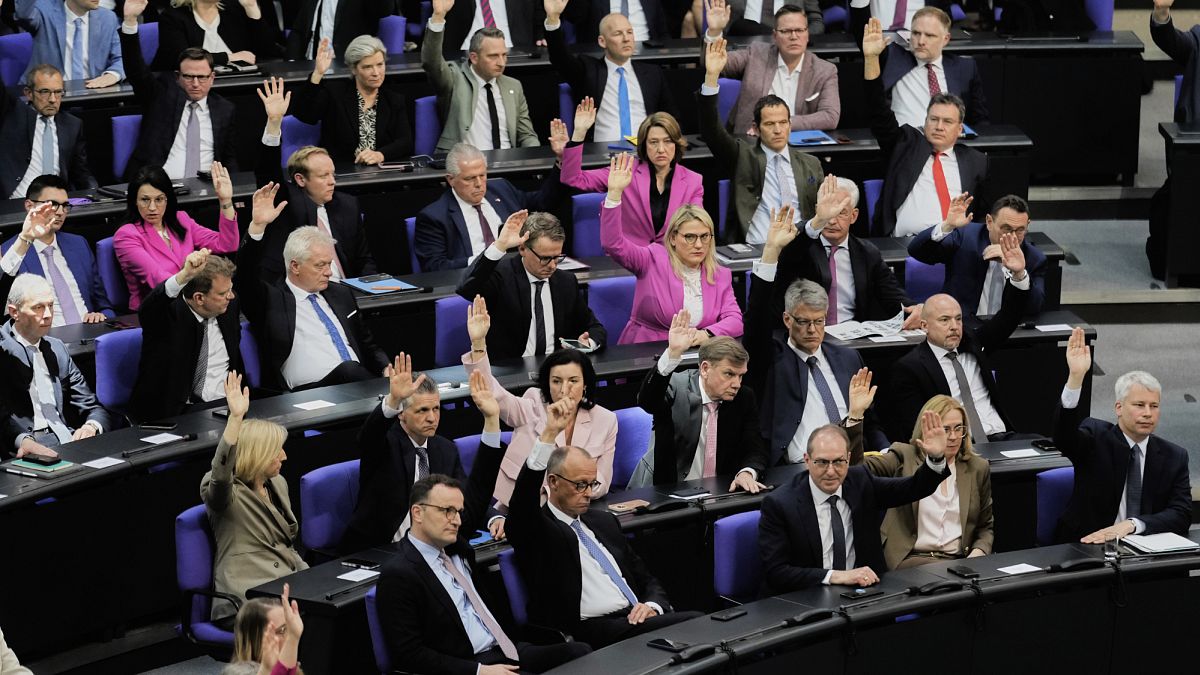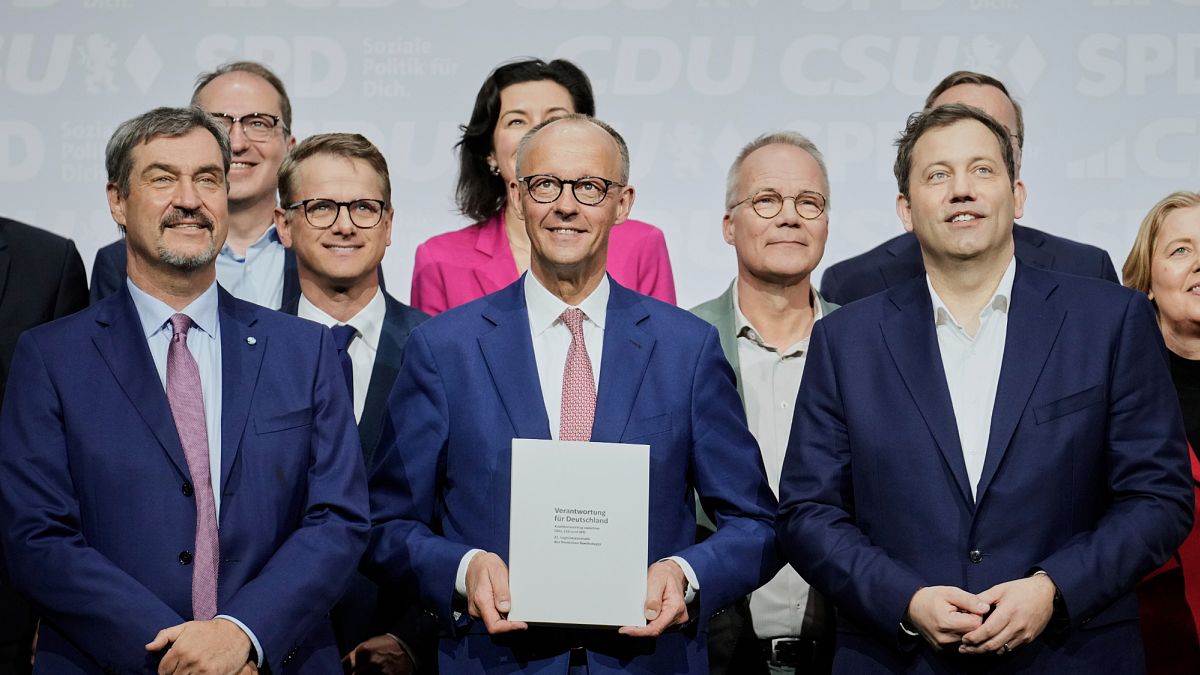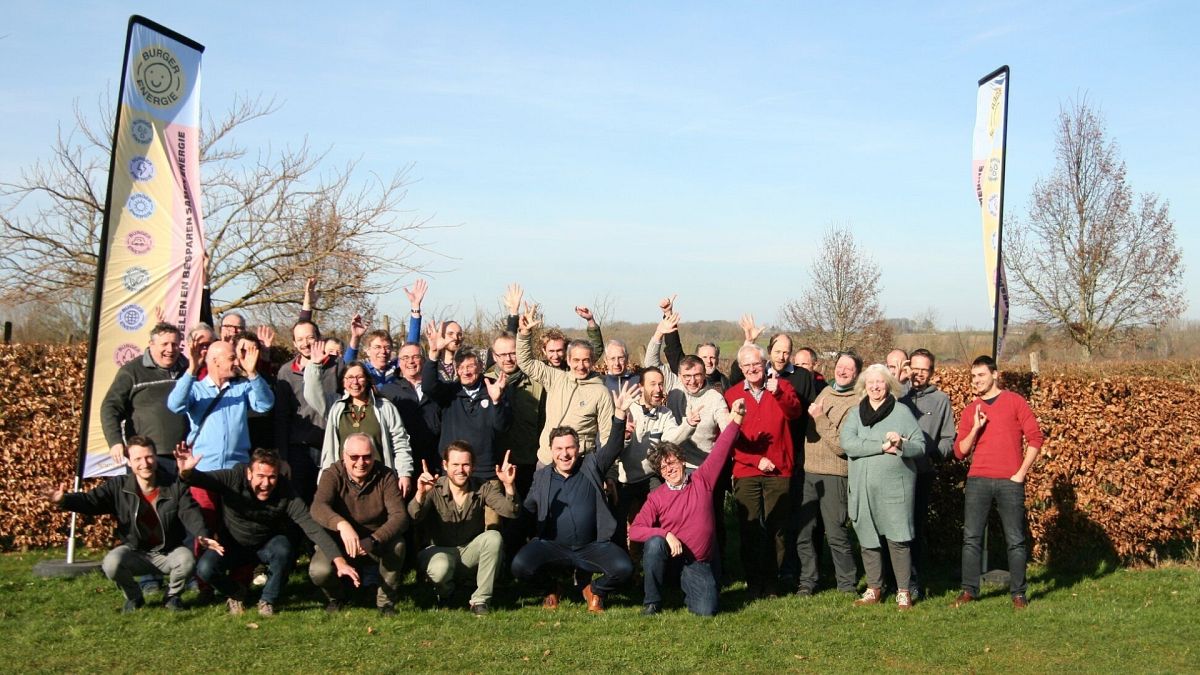How a Holocaust survivor’s child is fighting the far right at school
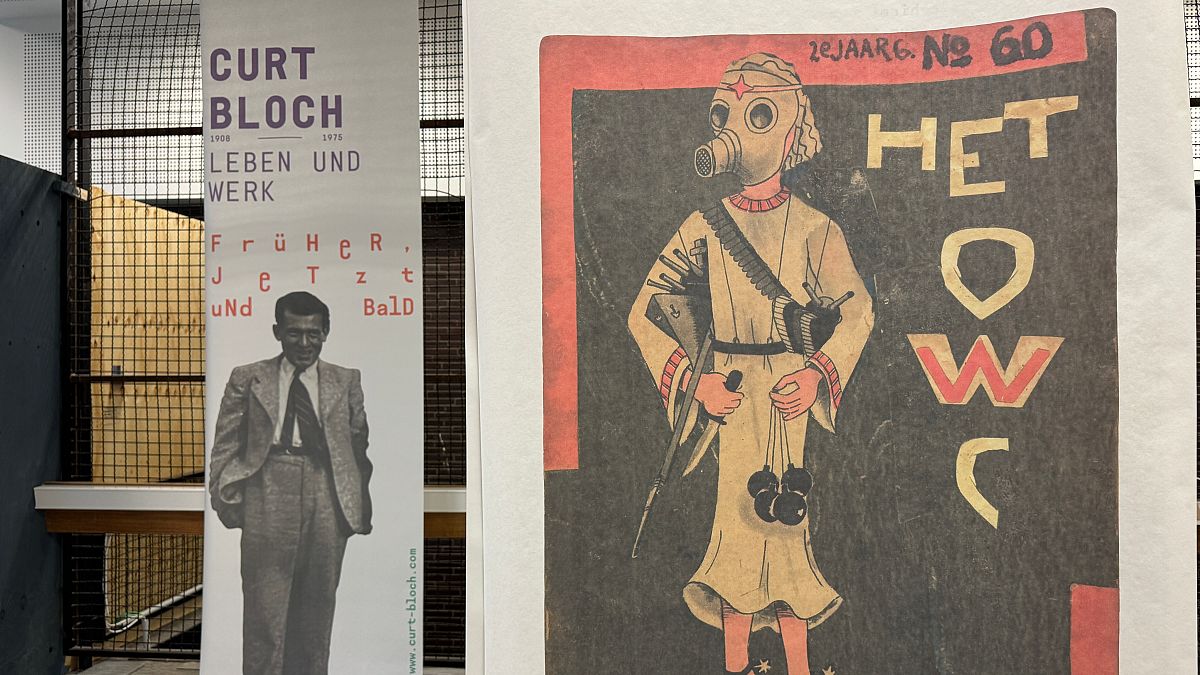
At an exhibition to celebrate Curt Bloch’s underground anti-fascist magazines on the anniversary of Kristallnacht, Simone Bloch found “kinship” with students — and a Syrian refugee.
“When I was young and went to Germany, people would look at me and they could tell I didn’t belong there,” Simone Bloch said from her Manhattan office. “It always gave me the creeps”.
The daughter of two German Holocaust survivors, Simone always had a complex relationship with her parents’ country of birth, which she still calls her “homeland”.
While her mother Ruth was imprisoned in Auschwitz aged 17, her father Curt went into hiding in the Netherlands. There he wrote and collaged almost 100 anti-Nazi magazines distributed to the Jewish underground during the reign of the Third Reich.
For decades after the war, the magazines sat gathering dust in Simone’s house in New York where she lives with family, including her 99-year-old mother.
But just a few years ago, Simone became worried by the rise of the far-right in the US and across Europe – and she made it her mission to promote her father’s works and his efforts to combat fascism.
She worked with German designer Thilo von Debschitz to create an award-winning website and an exhibition at the Jewish Museum in Berlin, one that’s received international attention.
This summer, a history teacher called Gabrielle Arning at Curt’s alma mater in Dortmund contacted Simone and Thilo hoping to put on an exhibition. They both jumped at the chance to help.
Old mistakes again
The exhibition opened at the Dortmund Stadtgymnasium in the week commemorating Kristallnacht, the Nazi pogrom that presaged the Holocaust. Both Simone and Thilo addressed students in a crowded auditorium at the school.
“I was thrilled,” Simone told Euronews, “I was really touched by how connected I felt.”
Thilo echoed her sentiment, describing how Curt’s story “lit the fire in the hearts of all these students…I was actually very moved”.
Euronews also spoke to Klaus Wegener from the Auslandsgesellschaft Dortmund, a cultural centre who helped fund the exhibition.
“We don’t get many chances to show young people the reality of daily life under the Nazi regime,” he said. “In this exhibition, you can see very, very well what happens when you lose democracy and freedom. All these things Curt Bloch didn’t have.”
All three were struck by how much students engaged with Curt’s work. The exhibition not only featured large reprints of his striking collaged front covers and extracts of his poetry, but countless responses by students inspired by his works.
“There was a small cabin with a black curtain where you could watch a video a student created about a poem of Curt’s. You could see drawings of students about freedom,” Thilo announced excitedly, before talking about a student who recited one of Curt’s poems to the school off by heart. “It blew me away, I was really impressed”.
Thilo, the grandson of Nazi officers who committed suicide upon finding out about Hitler’s death, suggested his parents’ generation “didn’t want to look into the past as they had to build up a future…so the questions have been passed on to the next generation.”
“For me it’s not only dealing with the past of my country, but with the past of my family.”
A 21st century disaster
In the audience watching the opening ceremony was Ahmad, a religious studies teacher from Darayya, a town to the south of Damascus, Syria.
“When Simone started talking about her father and how he left Germany at night and how he hid for a long time in that place, I started feeling like I could relate to every single word,” he remembers.
Ahmad was a student during the 2011 Syrian revolution and joined the protests against the Assad regime.
“Unfortunately, one of the people I contacted was actually a spy from the regime,” Ahmad told Euronews in a frank meeting with Simone shortly before the Assad regime fell to rebels from the HTS group.
“I was arrested for three months and with the most horrible things that you can ever experience in your life … without having contact to the outside, to your family, without knowing why”.
After escaping to Turkey and then Egypt, Ahmad was eventually smuggled on a small boat on an eight-day crossing from northern Egypt to Italy. He eventually settled in Germany, where he finished his studies, learned fluent German, and met his wife.
More than a million refugees of mostly Middle Eastern descent were granted asylum by Angela Merkel’s centre-right government in 2015. Dortmund alone welcomed over 10,000 Syrians between 2014-18. The policy was popular at the time, but critics now claim it has helped drive a significant portion of the German electorate toward the far right.
The irony of the place Curt Bloch was forced to flee becoming a refuge for so many isn’t lost on Simone or Ahmad, who see the commonality in their stories.
“I recognise people who have had to leave their place,” Simone said, “because I was raised by people like that. It’s not a nationality. It’s just a sadness that pervades your life.”
Ahmad nods. “There is a saying in Arabic that if you are a stranger, you feel related to every stranger,” he said, adding how grateful he was to Germany for welcoming him.
The teacher added that he felt a visceral reaction to hearing about Curt’s works. “I really could cry after every single sentence. I wish I could write about that time… like I had so many ideas and so many things to write when I was in prison, but I wasn’t allowed a pen or paper.”
For Ahmad, sharing his story from the revolution as HTS was advancing on the capital was important as even many young Syrians outside of the country didn’t understand the situation.
“They don’t have any idea about the country apart from knowing what happened in the past.”
‘A new puppeteer will lead you’
The demographics of the school have changed dramatically since Curt Bloch graduated almost a century ago. Its student body now includes a much larger Arab and Muslim population, and that presents new political issues.
Germany has been steadfast in supporting Israel and accounted for 47% of Israel’s total imports of conventional arms in 2023. This is despite strong opposition within the country, which some German media says has createdtensions between the country’s Muslim and Jewish populations.
Simone hits back at this claim, recalling a “vivacious and friendly and smart” Muslim student who asked her how her experiences and Curt’s story affected Simone’s opinion of Israel’s campaign in Gaza, which has killed more than 45,000 people since the 7 October attacks.
While Simone stated her belief that a state of Israel has a right to exist, she is a fierce critic of the Israeli government, and current international support for Israel.
Bemoaning “The fact that Israel is the way it is and that Germany supports it because of what they did to me,” she adds, “I feel implicated … so I understood why she was asking. And I felt like she had a right to ask.”
More widely, Simone was overwhelmed by how much the students engaged not only with her father’s work but her personally. “They were really friendly to me,” she smiled. “I mean, they were smiley and liked me.”
The day after Thilo and Simone opened the exhibition, Donald Trump clinched victory in the US presidential election. Two days later, the centrist coalition in Germany collapsed, this as the extreme party Alternative for Germany continues to surge in the polls.
“Same s**t, different century,” sighed Simone.
But she and Thilo are far from defeated: they are pressing to make Curt’s work part of the German curriculum, and Thilo is running for mayor in the German town of Wiesbaden. In the course of the conversation with Euronews, he brought up one of Curt’s poems:
“If one would let you forget
Your old mistakes again,
Then a new puppeteer will lead you
To a new slaughter-fest.”
“This poem is so f***ing up to date,” he exclaimed.
Source: Euro News


